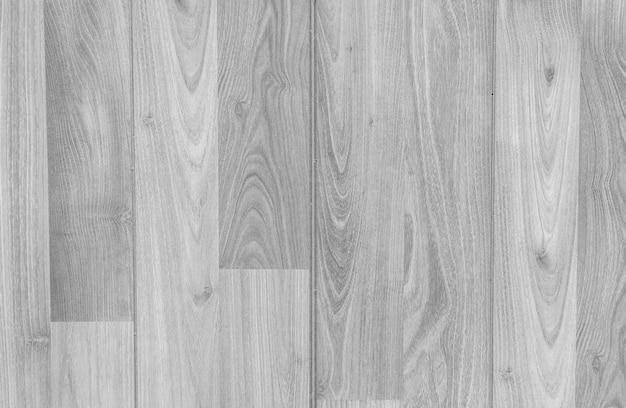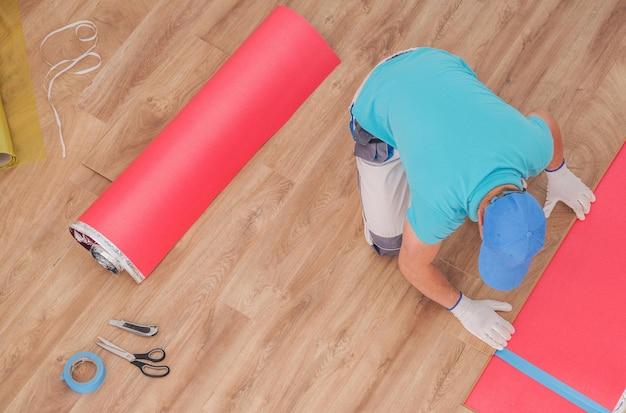Vinyl flooring has become a popular choice for homeowners due to its durability, affordability, and wide range of design options. However, when it comes to installing vinyl flooring on concrete, questions arise about the need for underlayment. Should you invest in underlayment? Will it make a difference in the performance and longevity of your vinyl flooring?
In this blog post, we will explore the importance of underlayment for vinyl flooring on concrete and address common concerns such as water damage, moisture barrier, and the black stuff that sometimes lurks beneath the vinyl floor. We’ll also discuss whether it is better to glue or float vinyl plank flooring and examine the role of a vapor barrier in the installation process. So, if you’re considering vinyl flooring for your concrete subfloor, keep reading to make an informed decision and ensure a successful installation.
Do You Need Underlayment for Vinyl Flooring on Concrete
Vinyl flooring has become a popular choice for many homeowners, thanks to its durability, versatility, and aesthetic appeal. But when it comes to installing vinyl flooring on concrete, the question of whether you need underlayment often crops up. Let’s dive into this topic and explore whether underlayment is a necessity or just an optional extra.
Understanding Underlayment Basics
Before we delve into the specifics of vinyl flooring on concrete, let’s take a moment to understand what underlayment actually is. In simple terms, underlayment is a thin layer of material that is placed between the subfloor and the flooring material. Its primary purpose is to provide stability, support, and added cushioning.
The Benefits of Using Underlayment
While underlayment may not be an absolute requirement for installing vinyl flooring on concrete, it does offer several advantages that are worth considering. One of the key benefits of using underlayment is that it helps to reduce noise transmission, providing a quieter environment in your home. Plus, it can act as a moisture barrier, preventing any potential moisture-related issues that may arise in a concrete subfloor.
Determining the Need for Underlayment
Now that we’ve covered the basics, let’s address the burning question: do you really need underlayment for vinyl flooring on concrete? The answer, my friend, lies in the condition of your concrete subfloor. If your concrete is smooth, level, and free from any imperfections, then you might be able to skip the underlayment. However, if your concrete subfloor is uneven or cracked, using underlayment can help create a smoother, more stable surface for your vinyl flooring.
Types of Underlayment for Vinyl Flooring on Concrete
If you decide that underlayment is indeed necessary for your vinyl flooring installation, you’ll be thrilled to discover that you have a variety of options to choose from. The most common types of underlayment for vinyl flooring on concrete include foam underlayment, cork underlayment, and rubber underlayment. Each type offers its own unique benefits, so it’s essential to consider factors such as noise reduction, moisture resistance, and overall comfort when making your selection.
The Bottom Line
In the end, the decision of whether you need underlayment for vinyl flooring on concrete boils down to the condition of your subfloor and the specific needs and preferences of your installation. While underlayment can provide added benefits in terms of noise reduction and moisture protection, it might not always be necessary. So, take a good look at your concrete subfloor, weigh the pros and cons, and make an informed decision that suits your situation best.
Remember, whether you choose to go with underlayment or not, the key to a successful vinyl flooring installation on concrete lies in proper preparation, precise measurements, and meticulous attention to detail. So grab your tools and get ready to transform your space with the wonders of vinyl flooring!
Frequently Asked Questions about Vinyl Flooring Underlayment on Concrete
What happens if water gets under vinyl plank flooring
Water can pose a serious threat to vinyl plank flooring if it seeps underneath. It can lead to mold, mildew, or even floor damage. This is why proper installation and moisture protection measures are essential.
How do you get water out from under vinyl flooring
If water manages to find its way under your vinyl flooring, don’t panic! Start by removing the affected planks or tiles, then dry the subfloor thoroughly. You can utilize fans, dehumidifiers, or even hire professionals to help with the process.
Is it better to glue or float vinyl plank flooring
Both glue-down and floating installation methods have their advantages. Glue-down provides a firm and permanent bond, while floating allows for easier replacement and better sound absorption. The best method depends on your specific needs and preferences.
Do I need underlayment for vinyl sheet flooring on concrete
Yes, installing underlayment between your vinyl sheet flooring and concrete is highly recommended. It provides additional stability, insulation, and moisture protection. Don’t skip this crucial step for long-lasting and comfortable flooring.
Should you put plastic under vinyl flooring
No, it’s not necessary or advisable to use plastic sheeting under vinyl flooring. This can trap moisture, leading to the growth of mold or mildew. Using a proper underlayment designed for vinyl flooring is a better choice.
What is the black stuff under the vinyl floor
The black stuff you might find under vinyl flooring is generally an adhesive residue or mold caused by moisture buildup. Proper subfloor preparation, including cleaning and treatment, is vital to prevent such issues from occurring.
Do I need underlayment on concrete
Yes, using underlayment on concrete is crucial. Concrete can be cold and prone to moisture, and underlayment provides insulation, sound absorption, and a moisture barrier. It enhances the overall performance and longevity of your vinyl flooring.
What happens if you don’t put underlayment under vinyl plank flooring
Skipping underlayment can lead to several issues. Without it, your vinyl plank flooring may lack proper support, become noisier, and potentially experience bumps or imperfections due to unevenness in the subfloor.
Can I use plastic sheeting as a vapor barrier
While plastic sheeting can act as a vapor barrier in some scenarios, it’s not suitable for vinyl flooring. Plastic traps moisture, which can cause mold, mildew, and other damage. Use a specialized underlayment designed for vinyl instead.
Does water get under vinyl flooring
Under normal conditions, water should not seep through vinyl flooring. However, if the installation is not done correctly or if there is excessive moisture, such as from spills or leaks, there is a risk of water getting under the flooring.
Do you need a moisture barrier for vinyl flooring on concrete
Yes, using a moisture barrier is critical when installing vinyl flooring on concrete. Concrete can emit moisture, which can damage the flooring over time. A moisture barrier protects your vinyl flooring and ensures its longevity.
What underlayment should I use on concrete
When choosing underlayment for concrete, opt for a product specifically designed for vinyl flooring. Look for features such as moisture resistance, insulation properties, and sound absorption to ensure optimal performance.
What are the disadvantages of vinyl plank flooring
While vinyl plank flooring offers many benefits, it’s essential to consider the disadvantages. These can include a slightly artificial appearance, vulnerability to sharp objects, and potential for fading in direct sunlight. However, overall, it remains a popular and durable flooring option.
Can you lay vinyl directly on concrete
It’s not recommended to install vinyl directly on concrete. Concrete is prone to moisture and temperature fluctuations, which can affect the flooring. Using an appropriate underlayment provides a protective barrier and enhances the overall performance of your vinyl flooring.
Do I need a moisture barrier and underlayment
Yes, it’s highly advisable to use both a moisture barrier and underlayment when installing vinyl flooring. The moisture barrier protects against moisture-related issues, while the underlayment enhances comfort, insulation, and stability.
Can mold grow under vinyl flooring on concrete
Mold can grow under vinyl flooring on concrete if there is excessive moisture or poor ventilation. Installing a proper moisture barrier, adequate underlayment, and ensuring good ventilation are necessary to prevent mold growth.
Is vinyl flooring good for basements
Yes, vinyl flooring is an excellent choice for basements. It’s moisture-resistant, easy to maintain, and can handle the typical challenges of basements, such as humidity and occasional water leaks. Ensure proper installation and moisture protection measures for the best results.
What can I put under vinyl flooring on concrete
Under vinyl flooring on concrete, it’s recommended to use a specialized underlayment designed for vinyl. This provides a moisture barrier, insulation, and sound absorption properties. It creates a stable and comfortable foundation for your vinyl flooring.
How thick should underlayment be for vinyl flooring
The thickness of underlayment for vinyl flooring depends on the specific product and manufacturers’ recommendations. Typically, a thickness of around 1/8 inch is suitable for most vinyl flooring installations. Checking the manufacturer’s guidelines is essential for accurate information.

